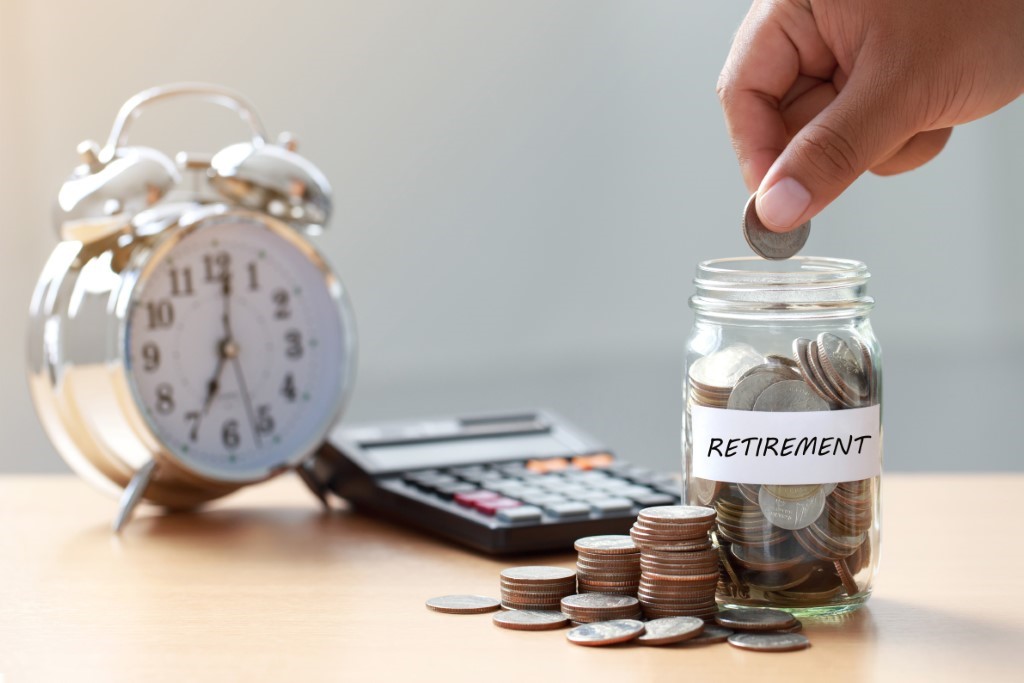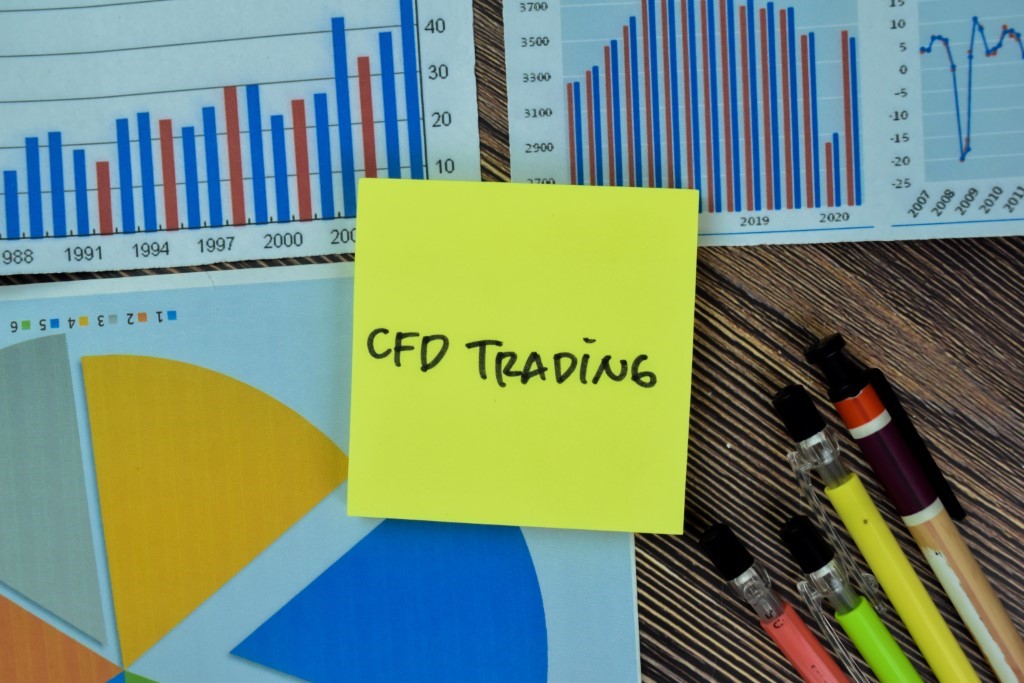Running your own business is exciting, as you get to call the shots and reap the rewards. But the coins won’t fill your coffers forever. Once it’s time to step down, you need to secure a retirement fund, too.
Why should you save? Well, almost 40% of business owners aren’t confident they can retire before age 65. That confidence is dependent on your retirement savings plan, which several entrepreneurs don’t have the luxury of having. (1)
Fortunately, saving for retirement is still possible with Contracts for Difference (CFDs). They’re potential investment options you can consider, and this blog will explore what they are, how they work, and how they could help you.

What Are CFDs?
CFDs are essentially agreements between you and a broker. You speculate on the price movements of an underlying asset—like a stock, currency, or commodity—without actually owning the asset itself. Depending on the CFD’s price, you ‘go long’ or buy it if it goes up and ‘go short’ or sell it if it goes down.
A key aspect of CFDs is leverage, which can magnify your potential profits but also amplify losses. Correct predictions result in profits from the difference in price, while the opposite makes you lose money. Say you have USD$1,000, and you think a stock is going up. You could buy USD$1,000 worth of stock. With CFDs, you can control a larger position by putting down just a small margin deposit, amplifying potential gains or losses based on the underlying stock’s price movement.
Due to that win-or-lose factor, investing in CFDs may seem overwhelming for the average person saving for retirement. Working with a reputable broker experienced in CFDs is advisable. Their expertise can guide you through the process, minimizing stress and potential pitfalls, often with user-friendly trading platforms.
Also Read
Why Consider CFDs for Your Retirement Goals?
If you’re an entrepreneur, you’re likely more comfortable taking calculated risks compared to a traditional investor. Thus, CFDs may be an attractive option for you. Here’s why you might consider CFDs to grow your retirement nest egg:
Diversification
Entrepreneurs understand the importance of not putting all their eggs in one basket. CFDs add diversity and a new asset class to your portfolio, potentially reducing overall risk. If the parts of your portfolio dip, your CFDs could balance things out, depending on your positions.
High Return Potential
Compared to traditional stocks or bonds, one of CFDs’ main draws is the potential for higher returns. With leverage in play, even small movements in stock price could lead to gains or losses. Entrepreneurs seeking accelerated growth for their retirement savings goal may find CFDs appealing. But remember, higher returns come with higher risks.
Go Short
Unlike investments like cryptocurrency, CFDs let you profit from falling prices by going short. For instance, if you predict a stock will decline, you can open a short position and gain as its value drops. Doing so will still allow you to make money despite the drop. Profiting from rising and falling markets makes CFDs an intriguing option for entrepreneurs saving for retirement.

Important Considerations Before Using CFDs for Retirement
CFDs may seem like a great option to boost your retirement fund, but it’s crucial to note that it’s not for everyone. Like any investment, they have significant risks. These are what you need to watch out for:
Leverage Is a Double-Edged Sword
Leverage can magnify your losses just as easily as your profits. A small price movement against your position could wipe out your entire investment, and you could even owe your broker more money.
Volatility
CFDs tend to be much more volatile than traditional investments like bonds or mutual funds. This means the price can swing wildly, making it difficult to predict and potentially leading to quick losses.
Regaining the losses could take years. Sometimes, a 100% return may be needed to break even after a 50% crash. During the 2007-2008 market crash, it took five years for investors to break even. That’s something to keep in mind if you decide to take the risk of using CFDs. (2)
Complexity
CFDs are complex financial instruments. They require a deep understanding of the markets and how CFDs work. Jumping in without proper research and experience could be disastrous when saving for retirement. So, if you choose to use CFDs for your retirement plans, having a trading partner might be beneficial.
Are CFDs Right for Your Retirement Plan?
If you’re not part of the 41% of millennials or Gen Z interested in investing in 401(k), 403(b), or another retirement account, CFDs could be for you. However, determining whether they fit your retirement strategy depends on several factors, including your risk tolerance, investment experience, time horizon for retirement, and overall portfolio allocation. A thorough self-evaluation is necessary to ensure CFDs align with your financial goals and risk appetite. (3)
Tips for Using CFDs Safely in Retirement Planning
If you decide to incorporate CFDs into your retirement plan, it’s crucial to follow best practices. First, start with a small investment and gradually increase as you gain experience. Consider something close to your values, such as investing in environmental efforts, which 45% of investors deem important. (4)
Next, employ risk management strategies like stop-loss orders to limit your potential losses. And most importantly, thoroughly research and understand the CFD market before trading. Consulting with a financial advisor experienced in CFDs is highly recommended.
Conclusion
While CFDs may not be suitable for everyone, they can be a valuable addition to a diversified portfolio for entrepreneurs saving for retirement. However, using them for personal retirement requires careful consideration, proper risk management, and seeking professional financial advice. With the right approach, CFDs could be the answer to boosting your retirement income.
References
1. “One-Third of Small Business Owners Lack a Retirement Savings Plan,” Source: https://www.prnewswire.com/news-releases/one-third-of-small-business-owners-lack-a-retirement-savings-plan-300833644.html
2. “The True Cost Of Market Volatility And Crashes,” Source: https://www.forbes.com/sites/forbesfinancecouncil/2024/04/30/the-true-cost-of-market-volatility-and-crashes/?sh=5d0ec2221bcf
3. “Share of Millennials and Gen Z who invest their money in the United States in 2022, by type of product,” Source: https://www.statista.com/statistics/1237749/genz-millennials-investment-products-by-type/
4. “Survey: Just 23% of Investors Align Most Investments to Their Values,” Source: https://www.nerdwallet.com/article/investing/survey-just-23-of-investors-align-most-investments-to-their-values
